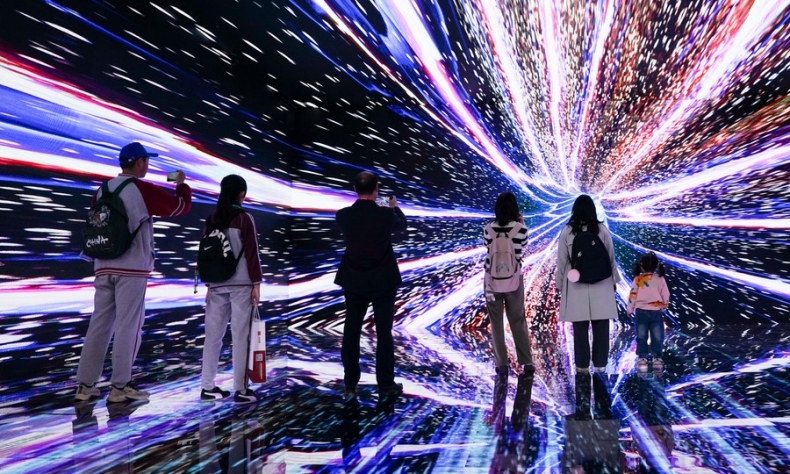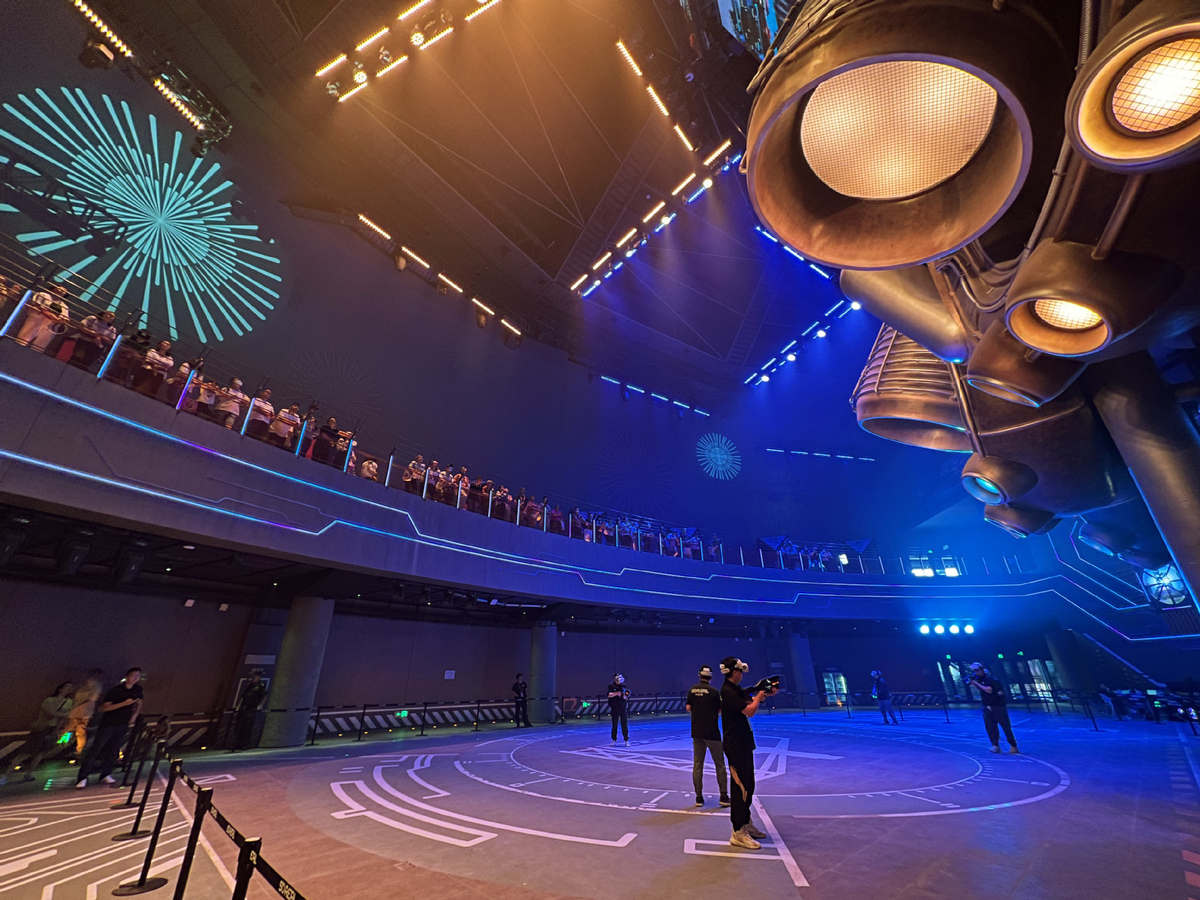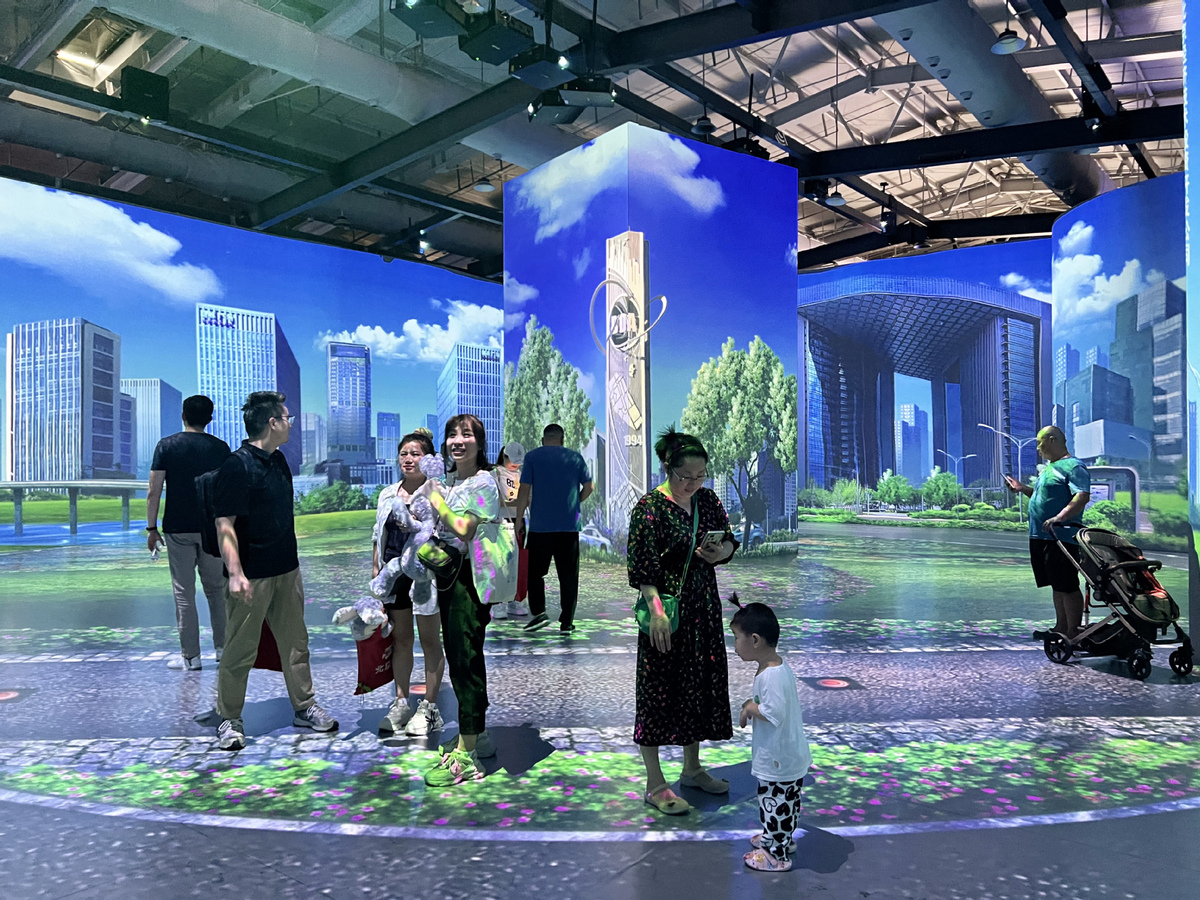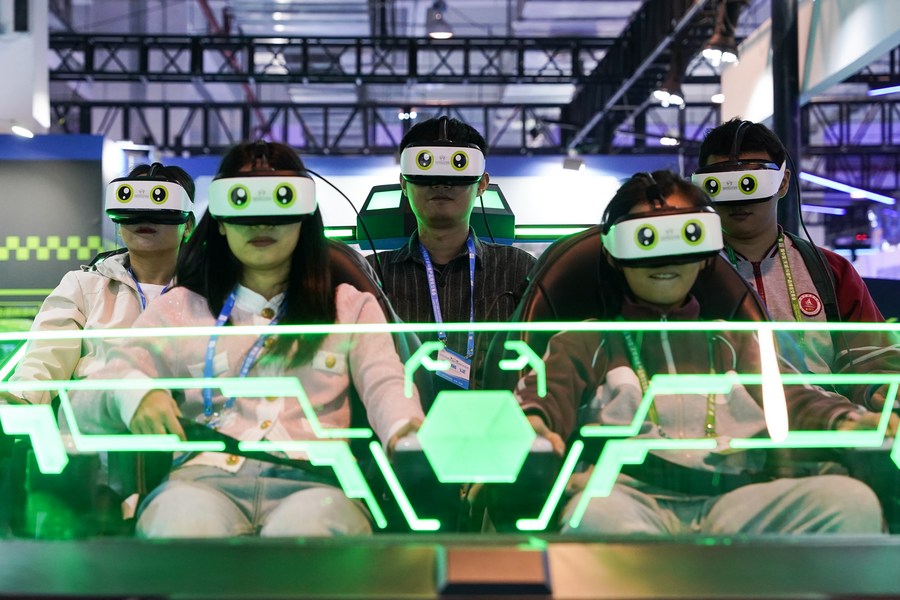Virtual Worlds, Real Rights

As the digital transformation of the world continues to accelerate, the entire society must be vigilant against technological alienation, and prevent human civilization from being trapped in virtual or digital spaces.
Information technology is reshaping human society in both breadth and depth. As technologies such as artificial intelligence, big data and blockchain continue to evolve and become widely applied, people are becoming increasingly dependent on digitized virtual spaces. The metaverse, an amalgamation of these technologies, provides users with an immersive and always-on experience and is emerging as a transformative force in social connectivity.
The term metaverse is often attributed to Neal Stephenson’s 1992 cyberpunk novel Snow Crash. Although there is no universally accepted definition for the term, it generally refers to digital spaces that are made more lifelike with virtual reality or augmented reality. Users visit different metaverses in the form of an avatar, which could be a replica of themselves. For example, you can meet your friends at a virtual concert even though you are physically far apart.
The metaverse has the potential to become a phenomenon that will impact our human rights in a transformative way comparable to the smartphone. But the future integration of our lives into the metaverse, as everything from commerce to healthcare and services moves into this new space, may supersede the profound transformation associated with today’s smartphones, according to a 2022 report titled Human Rights in the Metaverse by the Norwegian National Human Rights Institution.
Within the digital realm, users are not confined to fixed roles in the real world and are allowed interactions that transcend physical distance, national boundaries and cultural traditions.
But an increased reliance on new technologies such as virtual reality can also have negative consequences for human rights. “Instead of surfing on the Internet, we will be in it,” the report continued, adding, “The metaverse will therefore be a more fundamental challenge to the protection of human rights.”

What lies beneath?
The metaverse expands the right of each individual to participate in work. Human beings, as digital entities, can engage in virtual work and form real virtual social ties. This not only fulfills the right to survival and development, but also ensures broader and more equitable access to the right to work. For vulnerable population groups, such as people with disabilities and the elderly, who may not be able to leave their homes, the attraction of being able to go into a virtual space, provide and receive services, meet people and be entertained is compelling.
The digitalization of resources in the metaverse promotes cultural rights. According to the International Covenant on Economic, Social and Cultural Rights, adopted by the United Nations General Assembly in December 1966, citizens have the right to take part in cultural life, enjoy the benefits of scientific progress and its applications and engage in scientific research and creative activity.
In the world of the metaverse, educational elements are recorded in digital form and uploaded to the cloud for display. This allows the knowledge and resources of human society to be preserved and shared across space and time. Imagine being able to teleport to any place and time to learn about history by watching it unfold, or explore another planet up close.
Science and education in the metaverse are already being applied in numerous libraries, museums, cultural centers and schools across China, making the metaverse a source of equal development opportunities for citizens.
The construction of smart cities improves the protection of the economic and social rights of individuals. A smart city is created by combining technological development and transforming urban governance. Developing smart cities aims to interconnect key urban infrastructures, including urban management, education, healthcare, transportation and utilities.
Residents are encouraged to contribute suggestions to the city’s development planning through pre-rehearsals of urban planning schemes in the metaverse. The process helps government and developers compare and access plans before selecting the optimal solution.
In recent years, several regions in China have explored different models of smart urban governance, such as the City Brain system in Hangzhou, capital of Zhejiang Province in east China.

According to the official website of the Hangzhou local government, the system is a smart city platform that “aims to improve city governance through the use of big data, cloud computing, artificial intelligence and other cutting-edge technologies.” The platform connects data from all social circles and departments in Hangzhou, providing intelligent and convenient services for businesses and residents.
The entire city of Shenzhen, a major technology hub in the southern province of Guangdong, has been recreated in a 3D model, or “Digital Twin,” that is being used to guide urban planning decisions. The future of construction is expected to be more refined and more in tune with human needs and dignity.
What lies ahead?
Article 1 of the 1948 Universal Declaration of Human Rights states: “All human beings are born free and equal in dignity and rights.” All people deserve respect simply for being human. Human rights flow naturally from this dignity.
A virtual universe gives rise to a discussion about the evolution of existing human rights. Compared to the physical world, some will move up the chain and become dominant in the metaverse. For example, life in the metaverse is data-based, and so rights related to data and privacy will come to the fore and take on a whole new meaning.
The metaverse is seen as having a positive impact on the promotion of human dignity and the realization of human values. In the digital age, while technological advances offer new opportunities for the realization of human rights, they also pose new challenges and risks. In particular, challenges such as inadequate regulation of rights affirmation, risks of re-centralization, and increased data barriers are quietly impeding fair access to developmental rights for humanity.
As the metaverse evolves, effective protection of human rights will require continuous improvement of legal frameworks. The UN has declared that “human rights apply online just as they do offline.”

In addition, the Office of the UN Secretary General’s Envoy on Technology has taken proactive steps by identifying digital human rights as a key project within the international body’s broader technology initiatives. This involved a nuanced understanding of the differences between online and offline human rights, touching on issues such as privacy, digital identity, supervision and cyberviolence.
Metaverses must be based on principles of human rights. This includes integrating into code writing, technical operations and technology oversight the principles of “putting people first” and “equality for all.” It also requires the improvement of data governance theories.
Technology should be shaped and designed to reflect the values inherent to humanity. This approach serves as a safeguard to ensure that the core purpose of metaverse development is rooted in benefiting humanity and upholding individual dignity.
Furthermore, the promotion of international cooperation on human rights and the establishment of a digitized international human rights exchange mechanism are necessary steps toward achieving digital wellbeing for humanity.
As the digital transformation of the world continues to accelerate, the entire society must be vigilant against technological alienation, and prevent human civilization from being trapped in virtual or digital spaces.
Xiao Junyong is executive director of the Center for Science, Technology and Human Rights at the Beijing Institute of Technology; Zhang Yunhan is a research associate at the center.
 Facebook
Facebook
 Twitter
Twitter
 Linkedin
Linkedin
 Google +
Google +










